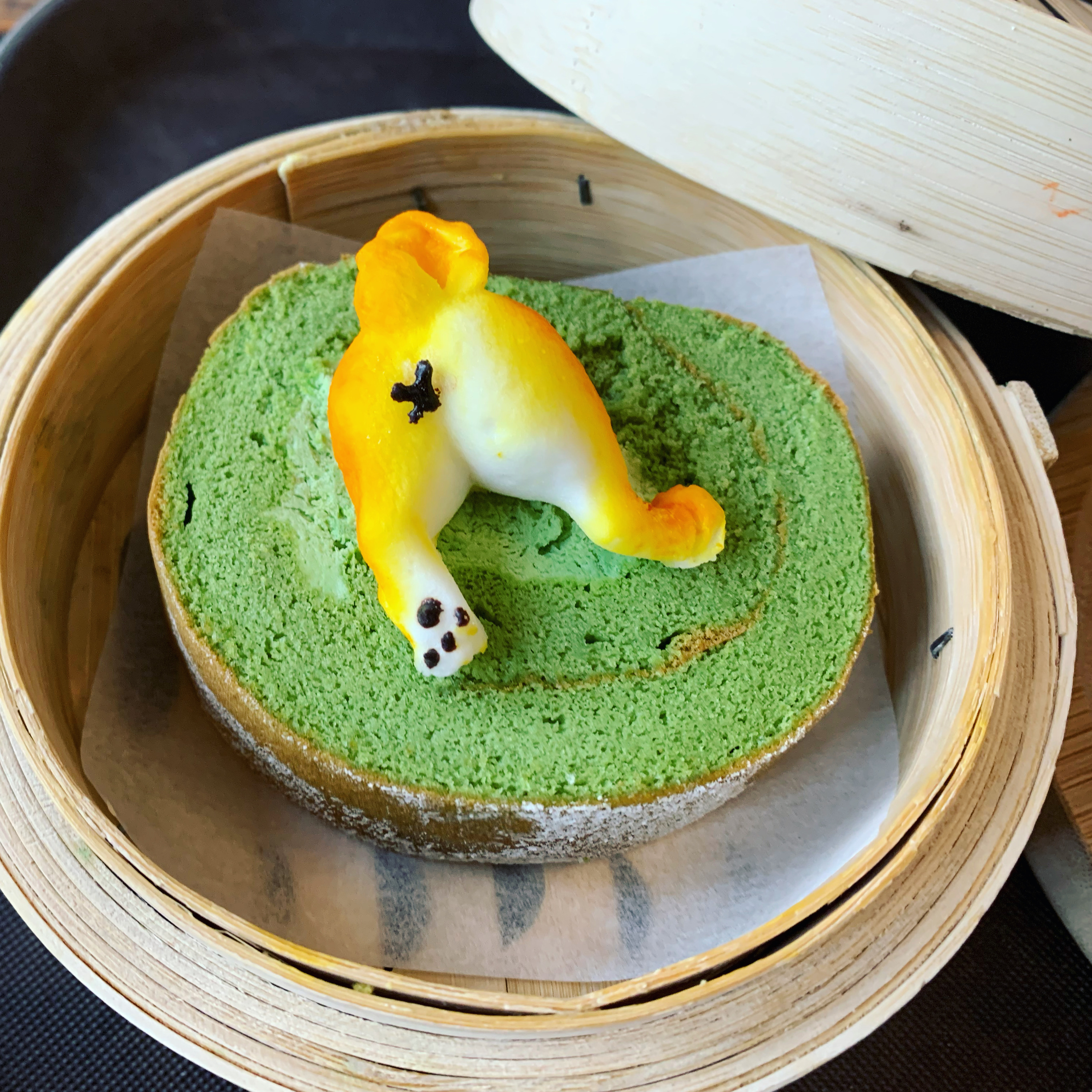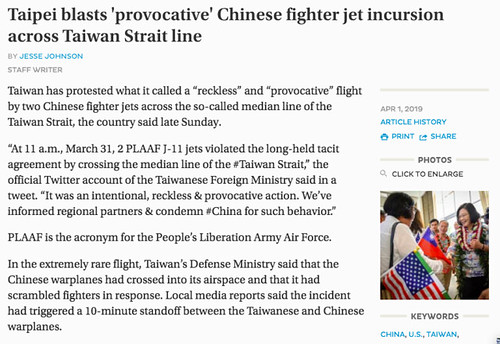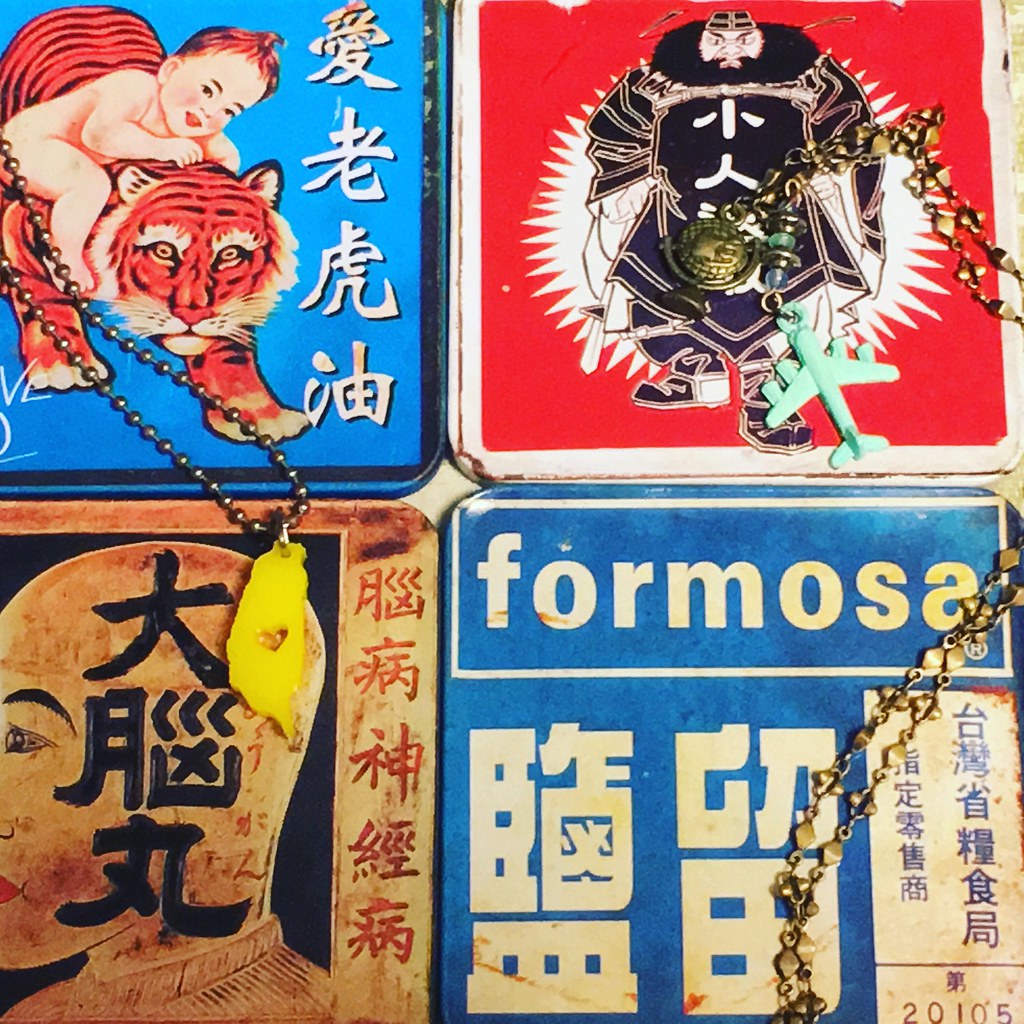I woke up this morning elated for Taiwan, and annoyed at the headlines dominating international news coverage. Editors around the world were clamoring over each other to choose the most asinine angle to introduce the results of the Taiwanese elections.
If these editors festering behind news desks are to be believed, Taiwan is a recalcitrant teen -- a very naughty boy -- defying the will of stern parental figure China. Taiwanese don't care at all about the threat of looming war and are basically taking a "fuck you, Dad, I do what I want!" approach to international diplomacy. As Taiwan slams the door to its room and blasts goth rock while smoking out the window, all the neighbors tut tut because they're "concerned about that kid's future" -- seemingly not noticing that the parental figures are abusive and cruel. It's a lot harder to help get someone out of an abusive situation than it is to worry that they're provoking their abuser.

Obviously, this is stupid. China isn't Taiwan's parent, and has no say in what Taiwan does. At worst, you might consider Taiwan an adult that's gone low-contact with abusive stepparents and is fully capable of managing their own affairs.
In other words, if Taiwanese voters, who have front-row seats to the Beijing hissy fit and have the missiles pointed at them (dear editors: do you have missiles pointed at you?) understand that appeasing Beijing simply will not work, why can't these major news outlets see it?
Taiwanese voters showed that they, unlike most of the world, correctly gauge the threat posed by China, and understand that accepting the terms of a country that wants to subjugate them simply does not work. They, unlike these editors, consider their own election to be about their polity, their country and their future -- not one dictated by China.
They understand that a temporary "peace" attained through telling Beijing what it wants to hear -- essentially, we accept the concept that Taiwan is part of China -- won't work. First of all, it's a lie, and Beijing probably surmises as much. Second, it won't be possible to keep up that charade for long. What do all of these "oh my god, it's so provocative" types think is going to happen when China starts pushing for meaningful steps to integration which the Taiwanese public does not want?
Because whatever it is, it won't be peace. If Beijing doesn't realize that Taiwanese don't think they're Chinese now, they eventually will. And then what?
The only solution, therefore, is to run their country as they see fit and hold the line with China. There simply isn't another way.
It would be fantastic if this were a wake-up call to the KMT that they might continue to dominate locally, but they will struggle to win national elections if they continue to push the narrative that Taiwan is China culturally, historically and/or politically (whether through ROC patriotism or bare-faced unificationism).
If the TPP could step up and be a true "beyond blue and green" or "beyond cross-strait tensions" opposition, well, I'd love to see what would happen there. But I doubt it, as long as they're a one-man party run by a misogynist third-rate manfluencer whose only coherent ideology is "ME!"
Anyway, I'm just ranting now.
Truly, the international media has taken great strides in how it reports on Taiwan. With some fumbles, the Taiwan-based reporters are improving on the work of their predecessors who used to parachute in, write garbage and leave. I don't see "split in 1949" nonsense that often anymore, and I haven't spotted a "renegade province" in some time.
Some pieces are genuinely good, like this one in the Financial Times (as usual, ignore the headline). It's nice to read an article and have no notes.
I'm still disappointed in the majority of think-tank analysis, but I suspect it will always be thus.
The editors who write these headlines, though?
They didn't just fumble. They took a Lalique vase, filled it with moonshine, drank the moonshine, barfed the moonshine back up into the vase, then threw the vase against the wall so that the barf and shards spattered everywhere, including on them. Then they shat themselves for good measure.
Anyway, their work is trash and I hope the good reporters who also get hit with flecks of their barf shards will tell them so.
Or maybe the gods can give them hangnails for every shitty headline they write. Nothing worse than that, I'm not a monster. Won't kill them but maybe will help them re-think their poor life choices.
Truly, this is a reverse vision board of terrible ways to lead an article about Taiwan.












